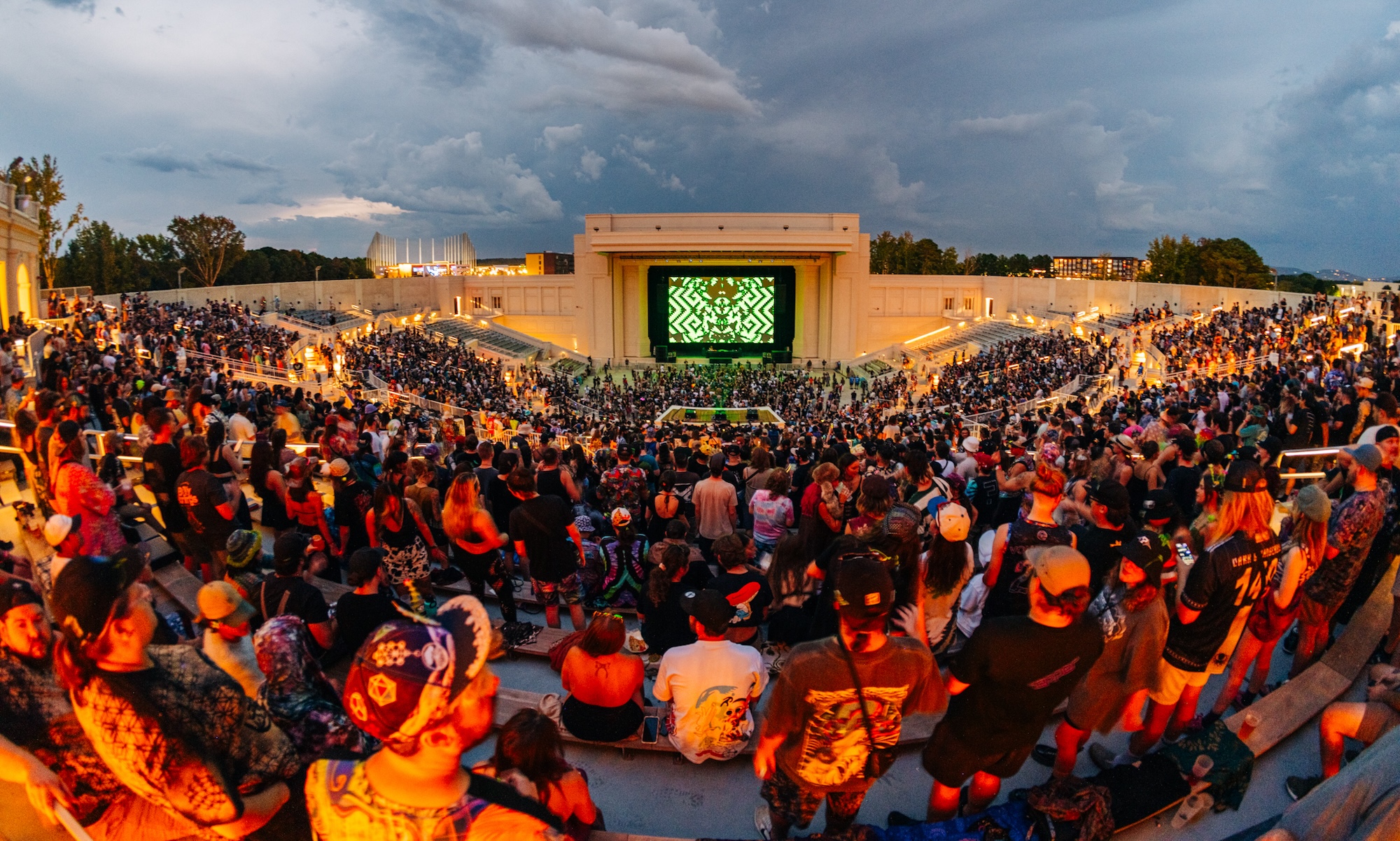NORTH STARS:
Products & Consumption
Waste Management
Certifications
“When Ben Lovett of Mumford & Sons imagined the concert venue, he wanted a space that embraced raised garden beds to seed cocktail offerings, native plant landscaping, community art, and zero-waste guidelines.”
Arms full of pale lime and deep jade-striped oblong Jubilee watermelons, Drew Stewart, Sustainability Coordinator for the Orion Amphitheater in Huntsville, Alabama, passes under the Americana Arch at the concert venue’s Apollo Park entrance. Heading toward the kitchen to drop off his bounty of produce, his path takes him through this sustainability-focused venue’s verdant landscapes, where largescale sculptures peek out of the greenery. Grown in on-site gardens around the 8,000-square-foot property, the sweet red-fleshed fruit will be transformed into cocktail bases, vinaigrettes, and maybe sorbets in the hands of Florence, Alabama restaurant Odette, which has an Orion-specific location open on show days and catering for private events.
In the midst of singing along to their favorite bands, concert-goers may not consider the immense waste and pollution produced by the live music industry each year, from carbon emissions to piles of single-use plastic cups. But the Orion, which opened in 2022, is a trailblazer, showing other venues that creating unforgettable memories for attendees doesn’t need to come at the expense of the environment. When Ben Lovett of Mumford & Sons imagined the concert venue, he wanted a space that embraced raised garden beds to seed cocktail offerings, native plant landscaping, community art, and zero-waste guidelines. As Sustainability Coordinator, Stewart brings those plans to fruition.
“The raised beds help us to reduce the supply chains — somebody picks the ingredients for the garnishes that morning, walks 50 yards to the prep kitchen, and then it’s ready to be served,” Stewart said. “I don’t use any chemicals. I compost at the start of the year and let them go. We grew 70 pounds of Sun Sugar tomatoes this year. They’re tiny orange, cherry-style tomatoes and just as sweet as can be.”
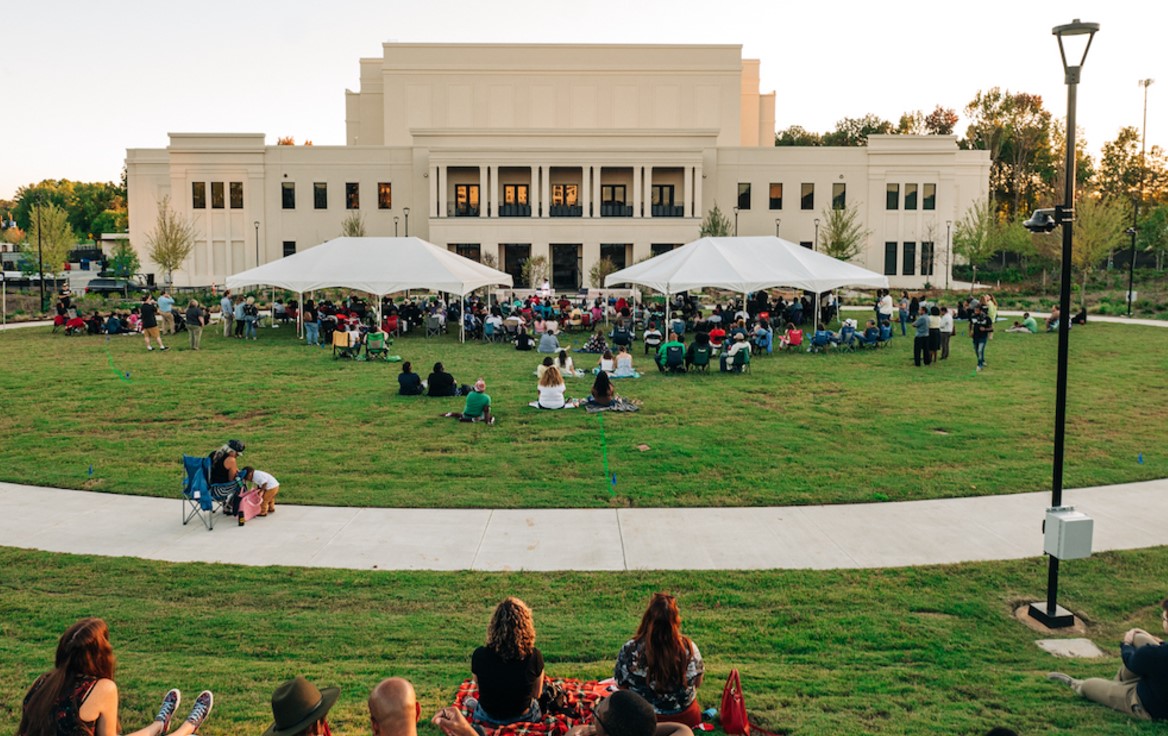
Concert goers at The Orion. Image courtesy of The Orion
After depositing the watermelons in the prep kitchen, Stewart checks the bars to ensure the recycling streams are set up and stops by the reusable cup return bins to ensure they are ready for the Benson Boone concert. They recycle aluminum and glass behind the bars but do not recycle plastic because of the microplastic pollution byproducts. Last year, they racked up half a million reusable Turn Cups. After this weekend, Stewart predicts they will be close to three-quarters of a million cups. He added, “Next year, we will hit 1 million cups. Aside from festivals in the country, we’re the largest user of Turn Cups.”
The Orion also partners with the Tennessee Riverkeeper, an organization fighting to prevent pollution from entering watersheds. “Plastic pollutes our drinking water — it just didn’t make sense to allow plastics,” says Stewart. “We wanted to be part of the solution and not part of the problem. We have a waste-to-energy partner, Reworld, here in Huntsville. They take all of our trash and turn it into energy for the city.”
Settled into his office, Stewart starts researching ways to improve operations and make it easier for the bar staff, guest service associates, and janitorial team to build on their mission of an environmentally-conscious concert venue. He communicates with vendors and food trucks slated for the week, trying to help them source the most sustainable materials. No vendor or organization that comes to the Orion can distribute single-use plastics or styrofoam products.
He often sources for vendors, trying to make sustainable operations easy. “I help local businesses who’ve never had this exposure to sustainable requirements or rules and regulations that we have here,” Stewart says. “We’ve had a few pick up our sustainability mantra, food trucks that now only do compostable materials in their regular business. It’s becoming more obvious to everybody that these practices can be done.”
Their green chemical program is guided by six eco certifications in on-site chemicals. Stewart has plans for a saltwater dilution system that will reduce the overall need for chemicals by using specific saltwater derivatives that are then chemically changed via electrolysis — only two cleaning chemicals will tackle 16 jobs.
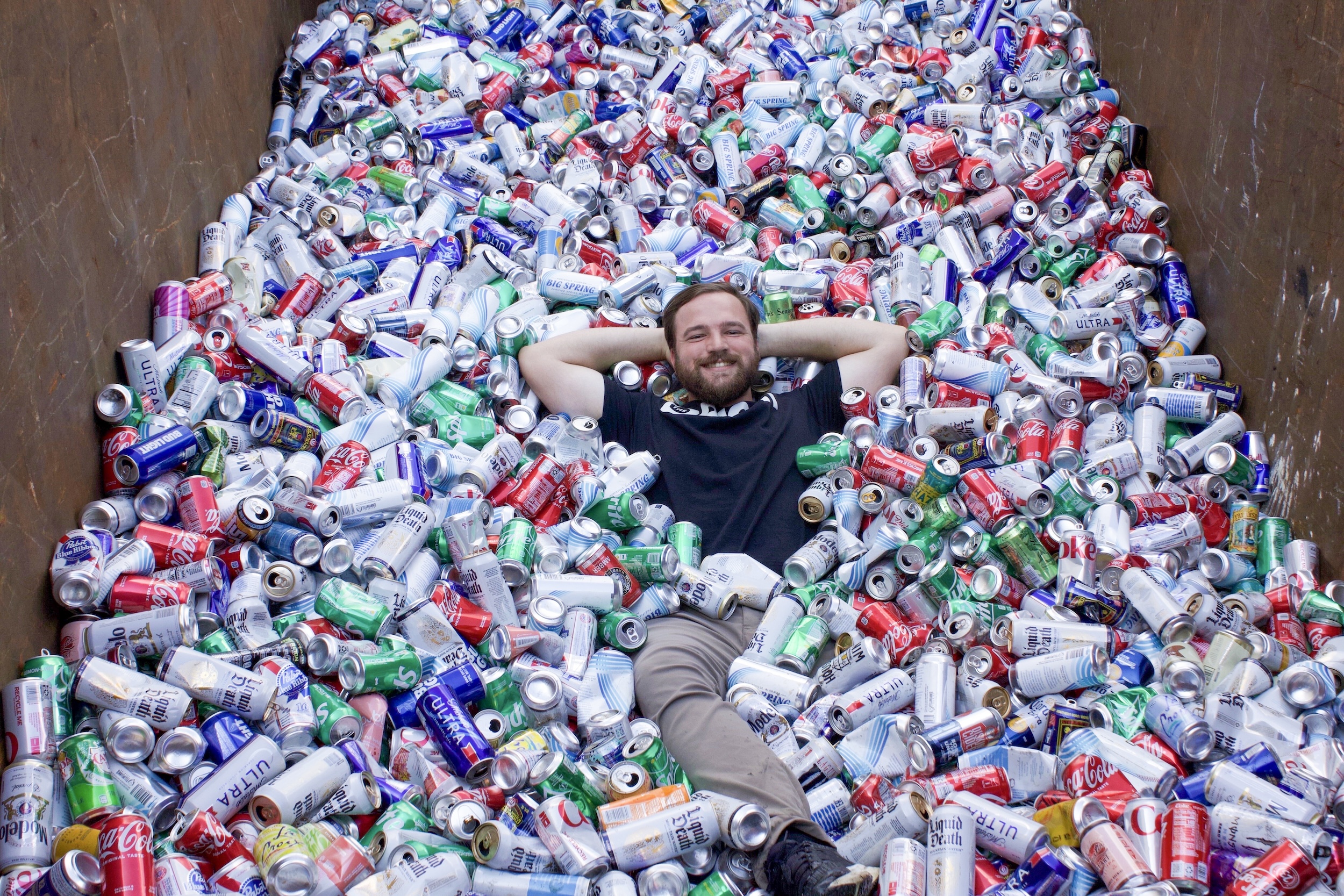
Drew Stewart. Sustainability Coordinator for the Orion Amphitheater. Courtesy of The Orion.
In addition to the watermelons, tomatoes, and peppers, Stewart propagates his great-grandmother’s raspberry plant in one of the 13 raised beds that seed the food and beverage program, alongside basil, mint, and various peppers. He just put in a budget request to add 16 new ones in guest-facing areas so concert-goers can see firsthand their commitment to sustainable sourcing. Food insecurity is another part of the work happening at the Orion — surpluses from the restaurant and catering go to the Manna House, a local food distribution program for those in need.
Beyond the donations, scraps and leftover bits from the kitchen, back-of-the-house, and restaurants get composted. But on the horizon for 2025 is guest-facing compost, so all of the food waste from food trucks, as well as all of the serveware, go back to the earth, further reducing the amount of trash generated.
“The Orion is a taste of North Alabama, from the food to the beverages to the entertainers and artists we feature,” says Stewart. “Our upstairs back-of-house hallway is decorated with paintings by local artist Sherry Fanning. We have a series called “A Moment in Time,” where we’ll have artists come in to talk about how different things inspire them in their lives. Aside from what’s decorating the building itself, we source musical performers’ gifts locally, like the witch hat we commissioned for Stevie Nicks.”
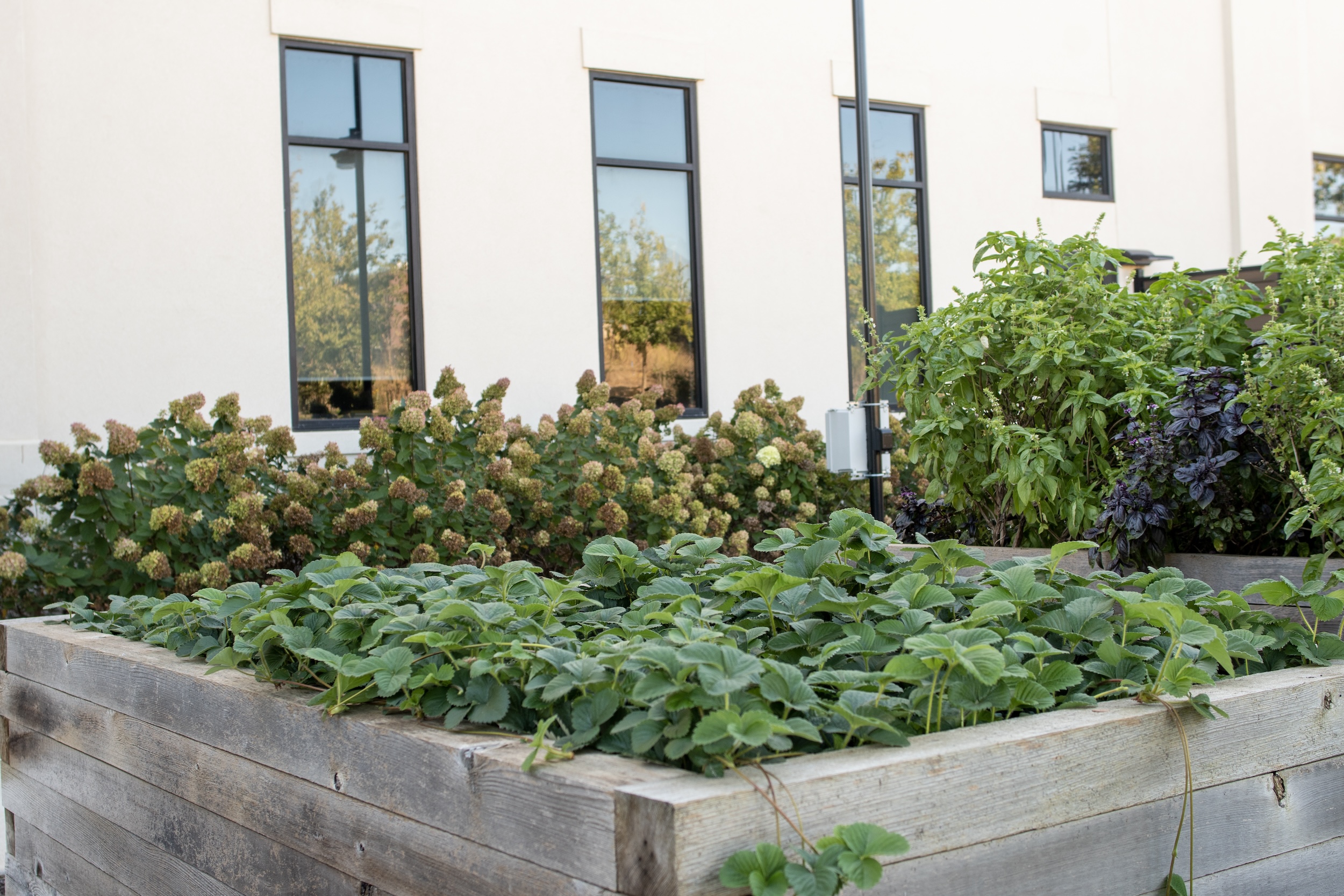
Raised garden beds. Courtesy of The Orion.
Loitering near one of the reusable cup bins, waiting for Benson Boone to take the stage, Stewart and his team watch as a mom points out to her daughter to put their cups in the blue bin, oblivious to their observers.
“Our mission statement is to have events that are as sustainable and have as little environmental impact as possible. We recycle electronics, batteries, cooking oil, pallets, and more. We had a recycling drive earlier this year, and community members brought in two tons of recyclable material. We love seeing so many people get excited about recycling,” Stewart says. “More people locally are starting to recognize The Orion for the sustainability efforts, and they’re starting to bring those home, our ultimate goal.”
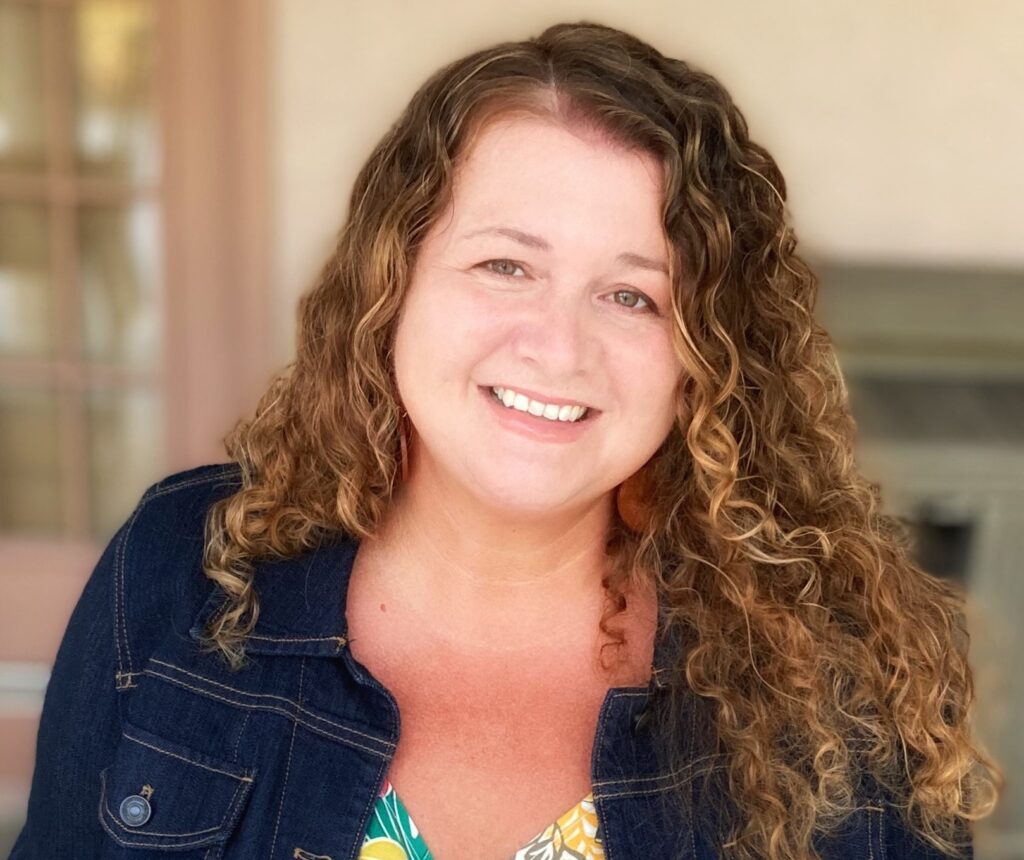
Carrie Honaker is a Florida-based food and travel writer who is not sure where she will land next, but it will involve messy eating, a spicy Tempranillo, and finding the local farmers market. She has hauled oyster cages off the Forgotten Coast of Florida, harvested indigenous crops with the Abenaki Tribe in Vermont, learned to make beef patties from a Jamaican auntie, made Guavaberry Liqueur with a 7th generation distiller on St. Maarten, and stomped cacao pods in Grenada. Follow Carrie on IG @writeonhonaker.


